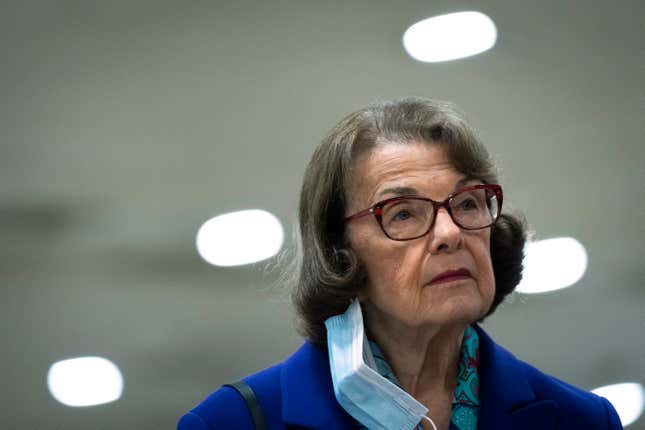Dianne Feinstein May Be ‘Mentally Unfit’ for Congress, and Others Probably Are, Too
The senator's memory is reportedly “rapidly deteriorating," and it's not necessarily sexist to discuss this.
CongressPolitics

Reports raising questions about Sen. Dianne Feinstein’s (D-CA) mental fitness to serve in Congress have been bubbling up on occasion for a couple years now. On Thursday, an explosive new report claimed “four U.S. senators, including three Democrats, as well as three former Feinstein staffers and [a] California Democratic member of Congress,” have said the California Senator’s memory is “rapidly deteriorating.” Per one specific anecdote, the California member in question told the San Francisco Chronicle that at a recent meeting to discuss policy with Feinstein, 88, they had to reintroduce themselves to the Senator multiple times over the course of several hours.
This week’s Chronicle report comes after a December 2020 story in the New Yorker that reported Feinstein was “seriously struggling” with memory loss, two years after she won reelection for her fifth term in the Senate in 2018.
Feinstein is currently the oldest sitting US Senator, just a few months senior to Iowa Republican Chuck Grassley, who is inexplicably running for reelection this cycle. The Senate itself comprises primarily politicians well into their 70s and 80s, and just a few years ago, an anonymous pharmacist told Vox that they’re regularly filling Alzheimer’s prescriptions for members of Congress, who are often legislating over life-or-death issues.
-

-

-

-

-

-

-

-

-

-

-

-

-

-

-

-

-

-

-

-

-

-

-

-

-

-

-

-

-

-

-

-

-

-

-

-

-

-

-

-








































